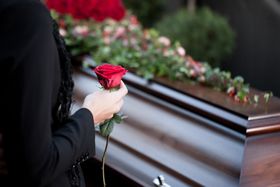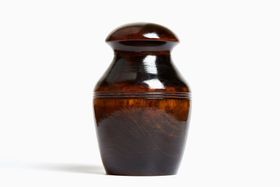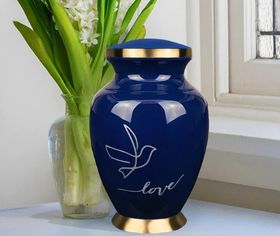Who Has Legal Rights to Cremated Remains?
After-funeral preparations are a widely disputed topic, and the legal rights to ashes can cause problems among family members.
Published July 1, 2022
Cremation is a widely disputed topic, and the legal rights to cremated remains can cause problems among family members. One person may want the body to be buried, while others opt for direct cremation. Someone else might want the ashes to be placed in a crematorium, displayed in someone's home, or even scattered. There could also be a debate between family members about who gets to keep the ashes. If there are many siblings, this could cause quite a problem.
Who Owns the Rights to Cremated Remains?
No one can own ashes or human cremains because the law considers them the same as the person or a body, and a person cannot be owned. The general rule in common law countries is that the spouse has the right to ashes after the cremation. If there is no spouse or partner, the ashes go to the surviving children. However, in other areas, the right to possess the ashes is the person in charge of the funeral or the person who signed the contract with the funeral director—often the bill payer.
Tips to Avoid Ownership Disputes Over Human Remains
The key to dealing with disagreements regarding funeral arrangements is to be patient and listen to everyone. After-death preparations can be challenging to navigate after the death of a loved one.
If there is a will in question, the family should respect their loved one's wishes. If the dispute is about burial or cremation and the family cannot agree on the funeral arrangements, the dispute may need to go to court. The court will consider all reasonable requirements and wishes of the family as well as to who the deceased had the closest connection.
If the debate is about who gets to keep the ashes, keepsake urns are a good solution because they hold a small number of ashes and each family member gets to keep their own and do with them what they wish, like burying cremated remains or placing them on a display shelf.
Related Articles

What to Say and Not to Say at a Funeral
Staff Writer
April 4, 2022

Picking the Right Urn Online for Your Loved One
Staff Writer
April 11, 2022

How to Celebrate Life Every Day
Staff Writer
April 11, 2022

How to Display an Urn in Your Home: 8 Ideas to Honor a Loved One
Cameron-Leigh Henning
April 25, 2022

10 Best Cremation Urns for Dad—Honor His Memory
Cameron-Leigh Henning
January 30, 2023
Related Posts
Cam Henning
What Do Cremated Ashes Look Like?
Staff Writer
Things You Should Not Include in Your Will
Staff Writer
